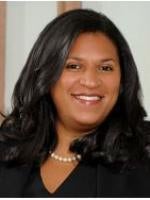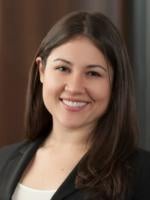Expert testimony can play a crucial role in the trial process. Consequently, parties often file motions to disqualify the opposing side’s expert witnesses. The success of these motions in federal cases is controlled by the Federal Rules of Evidence (“FRE”), which stipulate that expert testimony must meet certain standards of reliability to be admissible. In May 2022, the Advisory Committee on Evidence Rules (“ACER”) approved proposed amendments to Rule 702 of the FRE.[1] The amendments would render “preponderance of evidence” the proper evidentiary standard for evaluating the reliability of expert testimony. Structurally, this change would expand the trial court’s role in overseeing the admissibility of expert testimony. The Supreme Court will review the ACER proposed amendments this fall, and if approved, the changes will take effect at the end of 2023.[2]
Rule 702 on Testimony by Expert Witnesses: Current and Proposed Versions
Rule 702 currently states that expert testimony must: (a) help the trier of fact understand the evidence or determine a fact at issue; (b) be based on sufficient facts or data; (c) be based on reliable principles and methods; and (d) be based on principles and methods reliably applied to facts of the case.
The new proposed rule states that a witness who is qualified as an expert by knowledge, skill, experience, training, or education may testify in the form of an opinion or otherwise if the proponent demonstrates to the court that it is more likely than not that: (a) the expert’s scientific, technical, or other specialized knowledge will help the trier of fact to understand the evidence or to determine a fact in issue; (b) the testimony is based on sufficient facts or data; (c) the testimony is the product of reliable principles and methods; and (d) the expert’s opinion reflects a reliable application of the principles and methods to the facts of the case.
Purpose of Proposed Changes
ACER proposed amendments to Rule 702 with two intertwined goals in mind.[3] First, clarifying the evidentiary standard: the proposed amendments to the rule emphasize that the admissibility of expert testimony must be established by a preponderance of evidence. To establish something by a preponderance of evidence essentially means showing that something is more likely than not. ACER noted that “emphasizing the preponderance standard in Rule 702 specifically was made necessary by the courts that have failed to correctly apply the reliability requirements of that rule.”[4] Courts’ prevailing approach to expert testimony has been to err on the side of admissibility. Some courts have even interpreted Rule 702 as lending a presumption of admissibility. For instance, the Second Circuit has stated “the Court’s role as a gatekeeper is tempered by the liberal thrust of the Federal Rules of Evidence and the presumption of admissibility” and “[u]nder Daubert, expert testimony should be excluded only if it is speculative or conjectural or based on assumptions that are so unrealistic and contradictory as to suggest bad faith.”[5] The Fifth Circuit has taken a similar view towards the admissibility of expert testimony, stating: “As a general rule, questions relating to the bases and sources of an expert’s opinion affect the weight to be assigned that opinion rather than its admissibility and should be left for the jury’s consideration.”[6] ACER’s proposed amendments to Rule 702 clarify that expert testimony should not be presumed admissible on its face. Rather, an attorney seeking to have their expert’s testimony admitted must prove, according to a preponderance of evidence standard, that the expert’s methodology and principles are reliable and that the expert reliably applied their methodology and principles to the case at issue.
ACER’s second goal for the amendments to Rule 702 was a direct response to the aforementioned tendency of courts to assign a weight to expert testimony rather than making a judgement on admissibility. ACER emphasized the trial court’s gatekeeping role in admitting expert testimony. ACER stated, “a trial judge must exercise gatekeeping authority with respect to the opinion ultimately expressed by a testifying expert.”[7] This is largely a rebuttal to the practice of allowing expert testimony under a presumption of admissibility, then instructing jurors to assign weight to the expert testimony, in lieu of the trial court scrutinizing the admissibility of the testimony. ACER noted that many courts have held that the critical questions of the sufficiency of an expert’s basis, and the application of the expert’s methodology, are questions of weight and not admissibility. These rulings are an incorrect application of Rules 702 and 104(a). Therefore, ACER amended Rule 702 to compel courts to assess the reliability of the expert testimony, rather than delegating the issue to the jury as a question of weight.
Impact on Litigation
Assuming the Supreme Court approves the amendments, litigators can no longer presume their expert’s testimony will be admissible at trial. Rather, litigators must be prepared to defend the qualifications of their experts, alongside the methodologies they use. Litigators may also have more success using Daubert motions to challenge experts on the opposing side and disqualify them before trial. Under the amended rule litigators can expect a more fertile pretrial battleground over the admissibility of expert testimony. In response to this change, litigators must further scrutinize their prospective expert’s communication skills alongside their technical qualifications. In essence, experts must be able to distill their knowledge into a form that is easily digestible by trial judges to avoid running afoul of the amended Rule 702. Furthermore, the amended rule expands the importance of pretrial witness preparation. Litigators must instruct their experts on striking the delicate balance between talking over juror’s heads and providing a sound technical basis for their testimony. Finally, litigators must have a fulsome understanding of the concepts underlying their expert’s testimony so they can mount an appropriate defense of the testimony’s admissibility.
FOOTNOTES
[1] Report of the Advisory Comm. on Evidence Rules (May 15, 2022). https://www.uscourts.gov/rules-policies/archives/committee-reports/advisory-committee-evidence-rules-may-2022.
[2] Id.
[3] Comm. on Rules of Prac. of Proc., Agenda Book 892–95 (June 7, 2022), https://www.uscourts.gov/sites/default/files/2022-06_standing_committee_agenda_book_final.pdf.
[4] Id.
[5] Feliciano v. CoreLogic Saferent, LLC, No. 17 CIV. 5507 (AKH), 2020 WL 6205689, at *2 (S.D.N.Y. June 11, 2020).
[6] United States v. Hodge, 933 F.3d 468, 478 (5th Cir. 2019), as revised (Aug. 9, 2019).
[7] Comm. On Rules of Prac. of Proc., Agenda Book 892–95 (June 7, 2022), https://www.uscourts.gov/sites/default/files/2022-06_standing_committee_agenda_book_final.pdf.






 />i
/>i

